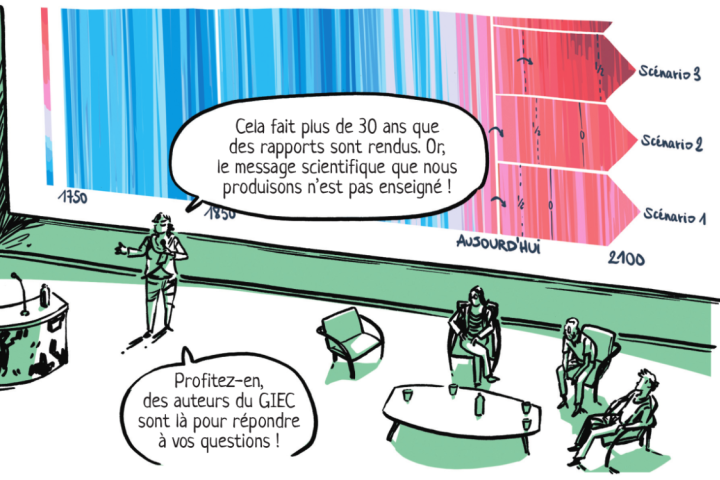Climate scientists, often faced with the dramatic consequences of climate change, experience deep emotions in response to this crisis. These experts emphasize the importance of acknowledging their feelings to revitalize scientific research. Balance objectivity and human emotion, not only to enrich science but also to ensure its social relevance. Ignoring the emotional component weakens the vital link between science and society, especially when some critics, often privileged, downplay these growing concerns.
Climatologists, often ridiculed for expressing their fears about the future, assert that recognizing strong emotions is essential to their work. They argue that suppressing these feelings to achieve a supposed objectivity weakens science. After participating in a study, these researchers were accused of lacking impartiality for expressing their fear of climate change. However, they maintain that these emotions motivate them to seek solutions and insist on the necessity of honest communication. The attempt to behave like “robots” is labeled as poor science, as emotions provide the necessary drive to enhance climate research.
Furthermore, issues of privilege are raised, particularly by scientists from the Global South, who are directly affected by the impacts of climate change. Expressing their fears helps avoid trivializing the impacts of this crisis. They aim to open a debate on the importance of emotions and privileges in the context of climate science.

experience of climatologists in the face of emotions
Climate scientists face a unique challenge: defending the legitimacy of their emotions while navigating a world that values objectivity. Far from compromising their research, these researchers regard their feelings as an essential driving force of their work. They see these emotions as a catalyst for innovation and pushing boundaries in response to the challenges posed by climate change.
Surrounded by criticisms regarding their impartiality, climatologists insist that integrating emotions enriches the debate and humanizes science. Ignoring these feelings amounts to omitting a critical dimension of research, and diminishes the ability to convey the urgency and severity of the current situation to an audience often insensitive to numerical data.
fighting against stereotypes about scientific objectivity
The illusion of absolute scientific neutrality is questioned by many experts, including in prestigious publications such as Nature Climate Change. They argue that repressing emotions under the guise of false objectivity harms the effectiveness of research. Climatologists work towards recognizing the place of emotions in scientific communication. This becomes an essential tool for mobilizing the public and prompting concrete actions in response to increasingly frequent and devastating natural disasters.
reflection on privilege and the need for authenticity
It is crucial to acknowledge that many of the criticisms come from individuals enjoying a certain privilege, often distanced from the realities experienced by scientists from the Global South. These individuals witness the dramatic impacts of climate disruption on a daily basis. Embodying the devastation of the planet through a more authentic approach could help dismantle the cultural and emotional barriers that hinder action against climate change.
#Paris2024 | Les émotions de Damien Letulle devant son public ! Bravo et merci ?
— francetvsport (@francetvsport) September 1, 2024
? Suivez les Jeux Paralympiques en direct : https://t.co/kOJfhQ7QZO pic.twitter.com/Nr6JwdOlvc
Articles similaires
Thank you!
We will contact you soon.














